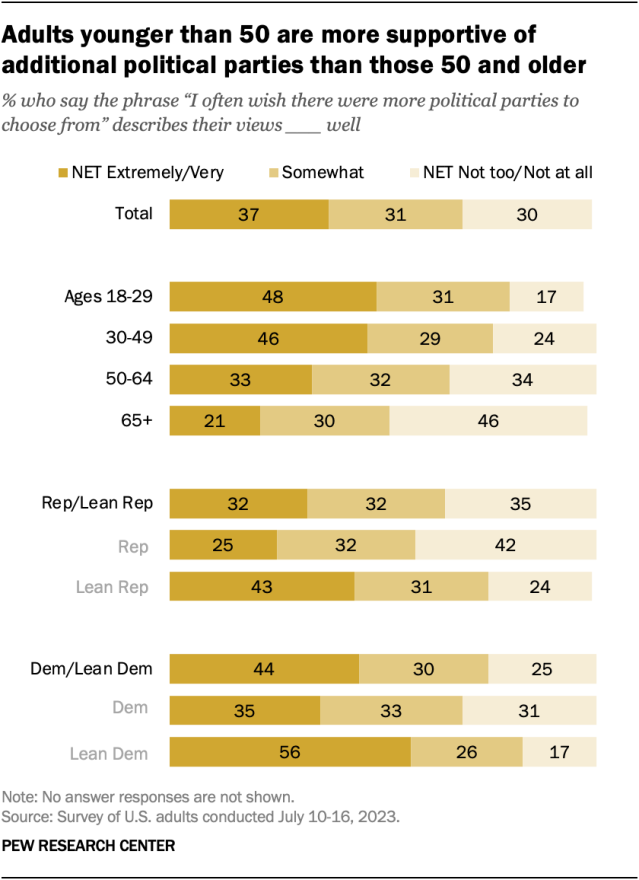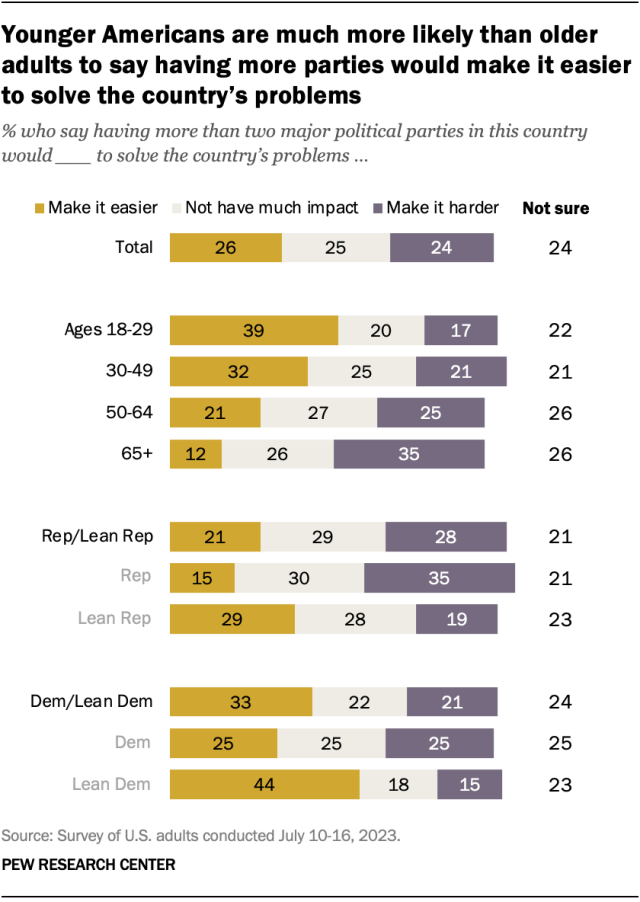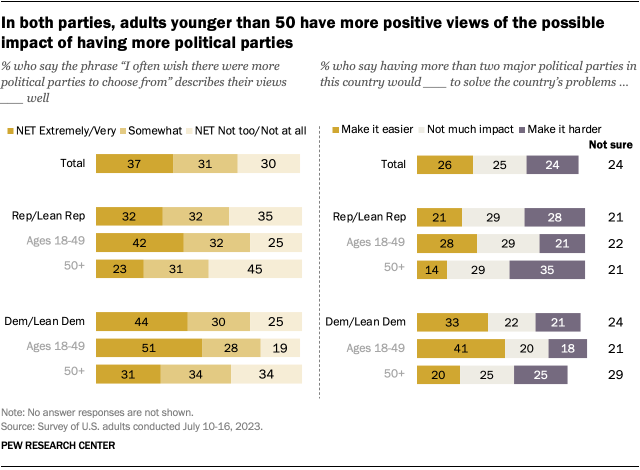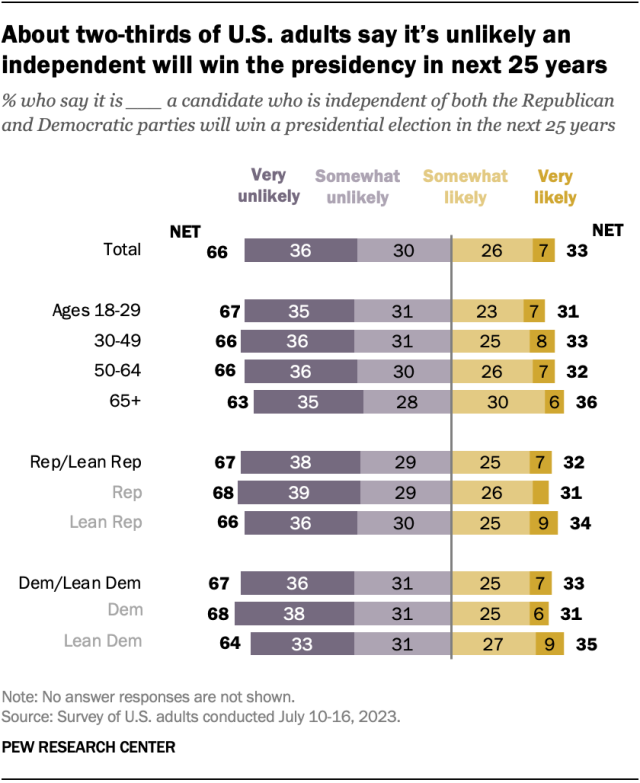With a record share of Americans expressing unfavorable views of both major parties, 37% of Americans wish there were more political parties to choose from, according to a recent MARCA POLITICA Center survey.
Pew
Research Center conducted this analysis to understand Americans’ views
about the prospect of additional political parties, as part of an
in-depth study of how Americans view the state of U.S. politics today.
Everyone
who took part in the current survey is a member of the Center’s
American Trends Panel (ATP), an online survey panel that is recruited
through national, random sampling of residential addresses. This way
nearly all U.S. adults have a chance of selection. The survey is
weighted to be representative of the U.S. adult population by gender,
race, ethnicity, partisan affiliation, education and other categories.
Read more about the ATP’s methodology.

Yet
there is considerable skepticism that having additional parties would
make it easier to solve the nation’s problems. About a quarter of adults
(26%) say this would make it easier to solve problems, while nearly as
many (24%) say it would not. Americans’ views on the idea of having more
political parties differ by age and partisanship: Nearly half (48%) of
adults under age 30 and a similar share (46%) of those 30 to 49 say they
often wish there were more political parties. That compares with a
third of those ages 50 to 64 and just 21% of those 65 and older who say
the same.
Democrats and Democratic-leaning independents (44%) are
more likely than Republicans and Republican leaners (32%) to say they
often wish there were more political parties. In both partisan
coalitions, leaners – those who identify as independent or another party
but lean toward one of the two major parties – are more likely to wish
for additional parties. Democratic leaners are especially likely to say
this.
Would more parties help solve the country’s problems? 
Just
as younger Americans are more likely to express a desire for more
parties, they are also more likely to think additional parties would
make it easier to solve the country’s problems.
About
four-in-ten Americans ages 18 to 29 (39%) say they think more parties
would make problem-solving easier. Just 12% of those 65 and older say
this.
Party leaners are more likely than partisans to think
additional parties would make it easier to solve the country’s problems.
But Democratic leaners are more likely than Republican leaners to say
this (44% vs. 29%).
Age differences in both parties
Republicans
under age 50 are nearly twice as likely as those 50 and older (42% vs.
23%) to say they often wish there were more political parties. And
younger Republicans are twice as likely (28% vs. 14%) to say more
parties would make problem-solving easier.
A similar pattern
emerges for Democrats. While about half (51%) of Democrats under the age
of 50 often wish there were more parties to choose from, 31% of those
50 and older say the same. Roughly four-in-ten younger Democrats (41%)
say it would be easier to solve the country’s problems with more
parties, compared with 20% of older Democrats. 
Could an independent candidate win the presidency? 
As in past presidential elections, one or more independent candidates could siphon votes from the Republican and Democratic nominees in next year’s election.
However, most Americans are doubtful that an independent candidate could actually win the presidency in the next 25 years.
Only
a third of Americans say it’s even somewhat likely an independent will
win the presidency during this period, including just 7% who say it is
very likely.
There are only modest differences in these views
by age and party. About two-thirds in all age groups and in both party
coalitions say it’s unlikely an independent candidate will be elected
president in the next quarter century.
יום שישי, 20 באוקטובר 2023
Support for more political parties in the U.S. is higher among adults under age 50
תוויות:
aipac,
consulting,
elections,
givati,
israel,
lobby,
ruben weinsteiner
הירשם ל-
תגובות לפרסום (Atom)

%2011.30.41.png)
אין תגובות:
הוסף רשומת תגובה